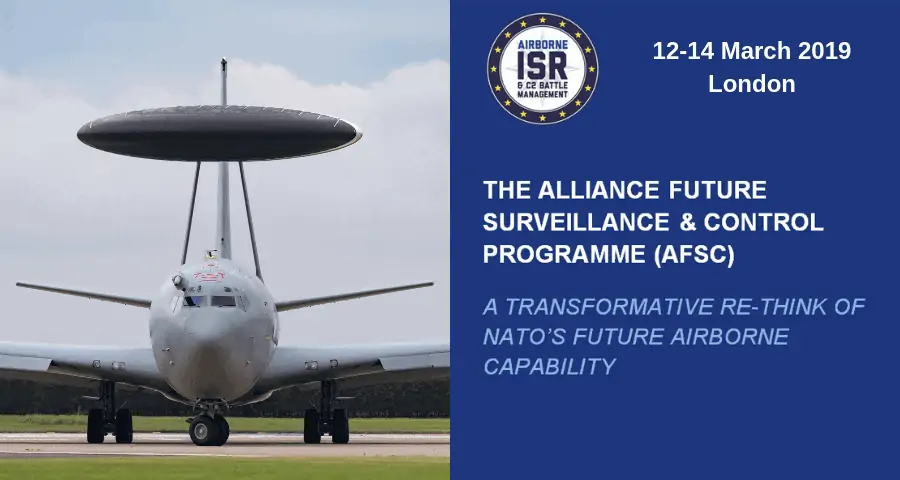NATO’s Alliance Future Surveillance and Control (AFSC) Programme is in full swing. The first stage of the Concept Phase is coming to a close, and the NATO Support and Procurement Agency (NSPA) has been heavily involved in coordinating the studies on potential architectures and technical concepts.
Ahead of the next Airborne ISR & C2 Battle Management conference in March 2019, where this programme will be explored in some detail, Defence IQ caught up with Dr Çağatay Soyer. Alliance Future Surveillance & Control Project Manager, at the NSPA, to get some early insight into how the project is evolving.
Within this interview Dr Çağatay Soyer highlights the lessons learnt and next steps for the AFSC industry days and concept study, and the role of industry in the design and delivery of the new capability. Insightfully, when discussing the key challenges of conceptualising a capability that will be operational from 2035 onwards, Dr Soyer suggested that time will play a major role when stating:
“One driver for the AFSC realisation schedule is the planned retirement of the NATO AWACS fleet around 2035. While 2035 may look like distant future, it really is not. The timelines associated with defining, contracting, developing and delivering a significant military capability are quite challenging. This is why AFSC starts now, already with the development of technical concepts”
This is one of the many challenges NSPA faces in light of the ever evolving technological advances that will be made between now and 2035 when NATO replaces and retires its E-3 aircraft fleet. It is therefore crucial that “the AFSC architecture will be kept open to allow flexibility based on new knowledge and developments”
You can read the full interview here: https://airborneisr.iqpc.co.uk/natofuturecapability/ust
For more information or to reserve your place at the Airborne ISR & C2 Battle Management call +44 (0)207 036 1300 or email [email protected]



















